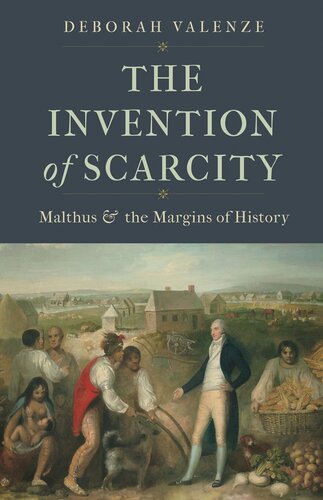

Most ebook files are in PDF format, so you can easily read them using various software such as Foxit Reader or directly on the Google Chrome browser.
Some ebook files are released by publishers in other formats such as .awz, .mobi, .epub, .fb2, etc. You may need to install specific software to read these formats on mobile/PC, such as Calibre.
Please read the tutorial at this link: https://ebookbell.com/faq
We offer FREE conversion to the popular formats you request; however, this may take some time. Therefore, right after payment, please email us, and we will try to provide the service as quickly as possible.
For some exceptional file formats or broken links (if any), please refrain from opening any disputes. Instead, email us first, and we will try to assist within a maximum of 6 hours.
EbookBell Team

4.3
28 reviewsA radical new reading of eighteenth-century British theorist Thomas Robert Malthus, which recovers diverse ideas about subsistence production and environments later eclipsed by classical economics
With the publication of Essay on the Principle of Population and its projection of food shortages in the face of ballooning populations, British theorist Thomas Robert Malthus secured a leading role in modern political and economic thought. In this startling new interpretation, Deborah Valenze reveals how canonical readings of Malthus fail to acknowledge the theorist’s remarkably narrow understanding of what constitutes food production.
Valenze returns to the eighteenth-century contexts that generated his arguments, showing how Malthus mobilized a redemptive narrative of British historical development and dismissed the varied ways that people adapted to the challenges of subsistence needs. In an argument that combines history, anthropology, food studies, and animal studies, she redirects our attention to the margins of Malthus’s essay, where activities such as hunting, gathering, herding, and gardening were rendered extraneous. She demonstrates how Malthus’s omissions and his subsequent canonization provided a rationale for colonial imposition of British agricultural models, regardless of environmental diversity.
By broadening our conception of human livelihoods, Valenze suggests pathways to resistance against the hegemony of Malthusian political economy. The Invention of Scarcity invites us to imagine a world where monoculture is in retreat and the margins are recentered as spaces of experimentation, nimbleness, and human flourishing.